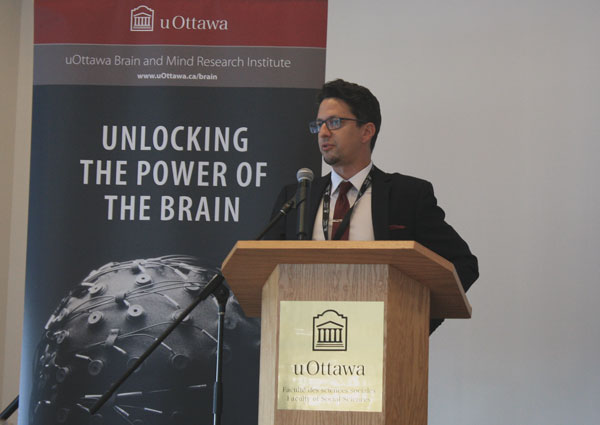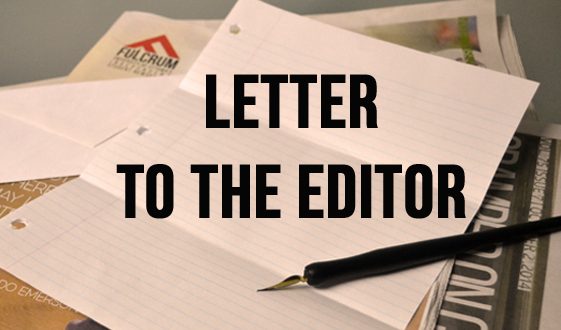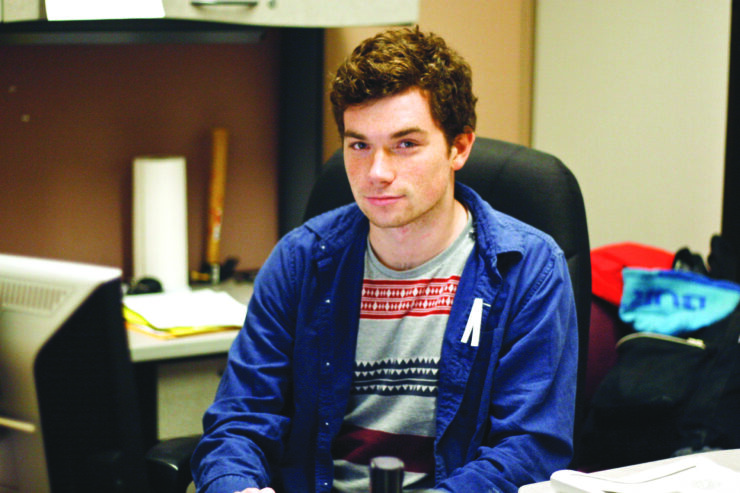iRecover featured at U of O Brain Health Awareness Week
Dr. Dar Dowlatshahi talks about iRecover, a new initiative to help with stroke recovery. Photo: Eric Davidson
The University of Ottawa has partnered with the Ottawa Hospital on iRecover, a project that uses smart technology like iPads and Androids to treat stroke patients.
The project is led by Dale Corbett, scientific director and CEO of Heart and Stroke’s Canadian Partnership for Stroke Recovery, and is a professor of Medicine at the U of O.
Working alongside him are fellow professors Dr. Dar Dowlatshahi, a neurologist at the Ottawa Hospital, and Dr. David Park, the scientific director of the University of Ottawa Brain and Mind Research Institute (uOBMRI).
Following a stroke, patients are forced to wait weeks, possibly months, for an opening in high-demand rehabilitation centres. In a limited hospital setting, patients are unable to receive specialized therapy for regaining physical abilities, as well as cognitive abilities that rely on motor skills such as reading, writing, and speaking.
The goal of iRecover is to use technology to engage stroke patients and implement recovery strategies as quickly as possible. “It differs from the standard form of rehabilitation because it’s supposed to occur in parallel with the patient’s acute stay in the hospital,” saids Dowlatshahi.
“We use existing technologies, specifically mobile platforms like iPads and Androids, to deliver speech, language, cognition, and physiotherapies, all from the patient’s bed,” he said.
With a thorough understanding of brain disease as well as clinical experience in recovery, the doctors knew that the best care for patients involves quick action, it is often necessary for patients to receive treatment within three hours of the event.
iRecover focuses on “getting rehabilitation started as early as possible after stroke so that patients in recovery can maximize the end result for a better quality of life,” said Corbett, according to Tabaret magazine.
The new program has received an exceptional response. “We were very surprised to how quickly people took to this technology,” said Dowlatshahi. “Across the board, they were adherent to all the therapies we asked them to try.”
iRecover was among many projects presented during the U of O’s Brain Health Awareness week, which promoted the importance of brain health and neurological research. As incidents of stroke increase—there are over 60,000 a year in Canada—improving not only research, but also recovery methods, is crucial.
One of the most common and detrimental brain injuries, strokes affect all aspects of a person’s life, with results differing according to the affected parts of the brain.
“It’s something that, when damaged, has profound effects beyond the physical,” said Dowlatshahi. “There’s emotional, cognitive, memory, and social aspects. It’s important not just to have acute therapies for just when the stroke happens, and preventative methods to stop them from happening, but we need recovery therapies.”
By introducing effective rehabilitation practices in the beginning stages of recovery, patients are given a head start back to a healthy life.





